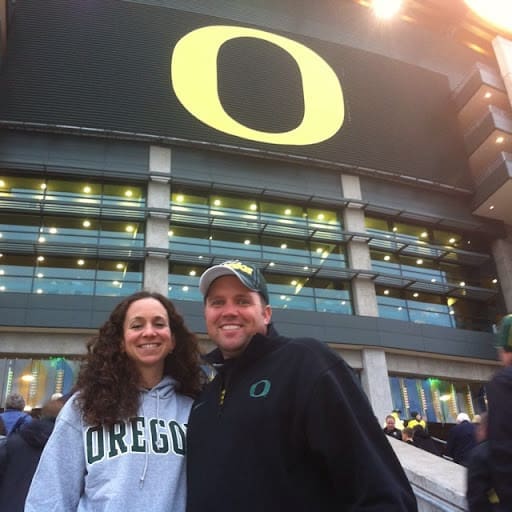Are nonprofits paying attention to the mobile marketing explosion around them? There is a golden opportunity awaiting traditional nonprofits for fundraising, social sharing of campaigns, charitable impact and more.
Going Mobile
 More than half of all Americans are carrying smartphones in their pockets, and a majority of them are using these devices to search, shop, communicate, work and even donate. And new fundraising and donation sites like Kickstarter, IndieGo and GoFundMe have sprung up in recent years, bringing a new tech edge to traditional fundraising and social commerce. Combined with new mobile advertising programs from social networks (see below), this development is causing a stir in nonprofit circles.
More than half of all Americans are carrying smartphones in their pockets, and a majority of them are using these devices to search, shop, communicate, work and even donate. And new fundraising and donation sites like Kickstarter, IndieGo and GoFundMe have sprung up in recent years, bringing a new tech edge to traditional fundraising and social commerce. Combined with new mobile advertising programs from social networks (see below), this development is causing a stir in nonprofit circles.
Instead of sticking to email newsletters and traditional fundraising tactics, nonprofits should look to the future of the Web. These organizations can start now to focus on mobile marketing tactics, by first mobilizing the websites, switching to cloud-based data storage such as Mozy, adding share buttons, getting permission for text opt-ins and more. There are number of mobile marketing best practices that nonprofits can start to implement now.
Non-Profits and Social Advertising
Just one year ago Facebook admitted it didn’t make a dime off mobile users. Today it’s set to capture nearly 16 percent of the mobile marketing share, according to digital marketing research firm eMarketer. This is the same company whose initial public offering was drowning at $18 before it launched mobile ads but is now flourishing at $42. The turnaround is huge for Facebook, but it also makes a statement for the mobile marketing industry. It’s booming.
The Pew Research Center reports that 72 percent of mobile users in the U.S. use a social networking service on their device. Social media plays a huge role in mobile marketing, because it offers the most exposure for marketers compared to mobile websites. Businesses are creating new ways to market using the avenues these social networks offer for advertising.
Targeted Ads
Social networks like Facebook and Twitter are enormous aggregators of user data. Facebook’s recent “Graph Search” feature lets users search for just about anything regarding what others on the network have regarding profile information. Facebook even put together a map of NFL loyalties by counties to show just how powerful and specific Graph Search is.
This data aggregation lets marketers uses “suggested posts” and “sponsored tweets” to advertise to a more targeted audience. A Facebook user who follows health and fitness pages will likely see ads for supplements and exercise programs in place of less relevant content not specified for that user. This means businesses pay less to target fewer users who are more likely click on those ads.
Hashtag Marketing
Twitter (and now Facebook) hashtags give businesses the chance to use keyword marketing to target specific audiences. They can use sponsored posts or engage directly with users who post hashtags on their own accounts. A financial firm can take a better look at how their business engages potential clients online by searching key phrases through Twitter and Facebook.
Companies like RadiumOne help businesses analyze social networking keywords to make targeting ads more efficient. The popularity of hashtags on these social networks created a new economy of companies who play middle men between social media and advertisers.
B2B Marketing
Companies aren’t just reaching out to consumers online. B2B marketing has huge potential in social media due to networks like LinkedIn, who put our a major revamp to its mobile app this year and allowed sponsored content.
As LinkedIn transforms from an online resume to a social sharing space, companies can interact with each other in ways they couldn’t on more consumer-driven networks like Twitter and Facebook. Mobilemarketer.com reports that only one-third of LinkedIn’s revenue comes from advertising-only accounts, but that number is expected to rise now that B2B marketers are jumping on board.
- Published: November 14, 2013
- Author: Leah Gibson
- Blog: Ducking In Blog
- Category:
- Tags: Advertising, economy, Facebook, linkedin, marketing, Nonprofit organization, Social media, Social network, target audience, Twitter, website
- Comments:
Quacktastic Reviews:
Excellent team to work with! Mike and Tisha are fantastic at coming up with new ideas while staying true to my companies vision, values, and…

Operating a restaurant and bar is hard enough. It demands wearing many hats. Promotions and marketing is not one of them any longer since we…











Can not recommend this team enough. What started as a one-time website re-design has evolved into Paradux handling the vast majority of our marketing. Business…











We would not be able to run as smoothing, quickly, or efficiently if it was not for Paradux Media Group. Tisha and team is hands…











Recently, I had the opportunity to work with Paradux Media on a website build, and I just couldn’t have been happier with the process and…











Mike and his team are well known within the region and marketing community as an insightful industry leader. If you are looking for a Marketing…











Paradux Media is a very professional group, and they know what they’re doing. Whether they are placing buys for clients, or producing high-quality TV spots,…











Paradux helped build my business in all capacities. Without them, I would never have had the resources and ability to get so much accomplished –…











Mike, Tisha, and the team can build you anything you want for your company or small business. Very knowledgeable and easy to work with. They…











As a long-time client of Paradux, I can confidently say that their creative team is one of the best in the business. They consistently produce…






















Very informative. Keep up the good work!
I like reading and blogging about various Business and Marketing strategies.